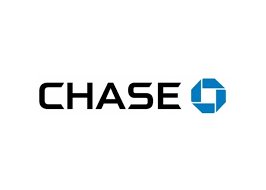As the world shifts further into the digital age, traditional banking is being rapidly reshaped by tech-driven financial services, and understandably so.
Among the frontrunners in this space are Chase, a long-established American banking giant, and Revolut, a UK-born fintech disruptor of sorts. While Chase brings the weight of legacy, scale and security, Revolut offers sleek design, innovation and a mobile-first approach that appeals to modern consumers. Both offer compelling digital banking solutions, but, having said that, they serve very different audiences and financial needs.
Whether you’re looking for international money management, daily spending tools or seamless saving and investing features, the choice between Chase and Revolut ultimately comes down to functionality, flexibility and user experience.
What Is Chase?

Chase is the digital banking arm of JPMorgan Chase, one of the largest and most established financial institutions not just in the UK but in the whole world. Launched in the UK in 2021, Chase offers a mobile-first banking experience designed to compete with modern fintech platforms.
Unlike traditional banks, Chase operates entirely online with no physical branches, allowing customers to manage their finances easily through a sleek and user-friendly app. Its features include a fee-free current account, round-up savings, cashback on spending and competitive interest rates on savings.
Chase also places a strong emphasis on security and customer service, backed by the global expertise of JPMorgan Chase, which is a massive bonus. With its combination of trusted banking infrastructure and innovative digital features, Chase aims to provide a reliable yet forward-thinking alternative to both high street banks and newer digital-only challengers. It’s particularly appealing to UK customers seeking a streamlined, rewards-driven approach to everyday banking.
More from Business
- What Is Franchise Management and How Does It Work?
- Is AI Leveling the Playing Field for Early-Stage Startups?
- Top 10 Ways VoIP Can Improve Customer Service
- The Evolving Role Of Compliance In Business
- How To Start A Business In Albania
- Landline Switch-Off: A Wake Up Call
- What Is A Due Diligence Audit for Startups?
- Boosting Small Business Growth In The UK: A Practical Guide
What Is Revolut?

Revolut is a UK-based fintech company that was established far more recently, about 10 yers back in 2015. Offering a flexible, all-in-one digital banking solution through its powerful mobile app, Revolut quickly gained popularity for its low-cost international money transfers, multi-currency accounts and user-friendly interface.
Unlike traditional banks, Revolut is app-based and offers a wide range of financial services, including budgeting tools, cryptocurrency trading, travel insurance, stock investing and premium subscription plans with added benefits. It supports spending and withdrawals in more than 150 currencies and offers interbank exchange rates, making it a favourite among frequent travellers and digital nomads.
Revolut also provides virtual and disposable cards for secure online shopping, as well as instant spending notifications and customisable budgeting features. While it operates under an e-money licence in the UK, Revolut is expanding its banking capabilities across Europe. With its focus on innovation, speed and global functionality, Revolut is redefining how people manage money on the move, making for exciting times in the modern world of digital banking.
Putting Revolut and Chase Head to Head
Both Chase and Revolut offer modern, app-based banking experiences designed for ease, speed and convenience, but they cater to slightly different needs and offer slightly different services.
Chase, backed by JPMorgan Chase, provides a simplified digital current account with no monthly fees, 1% cashback on everyday spending as well as a competitive interest rate on savings. It’s perfect for users who want a straightforward, reward-driven banking experience with the reassurance of a globally trusted name. But, at the same time, its features are relatively limited compared to more versatile fintech apps.
Revolut, on the other hand, is a feature-rich platform designed for users who want full control of their finances. It offers multi-currency accounts, fee-free international transfers (up to a limit), budgeting tools, cryptocurrency trading and even stock investments. Revolut’s tiered pricing model offers additional perks like travel insurance and lounge access at higher subscription levels.
Both platforms are fully app-based, provide instant transaction notifications and prioritise user security. But, generally speaking, Revolut appeals more to international users and tech-savvy customers, while Chase leans towards those seeking a simple, reliable alternative to high street banks.
Ultimately, Revolut is more versatile, while Chase is more focused.



